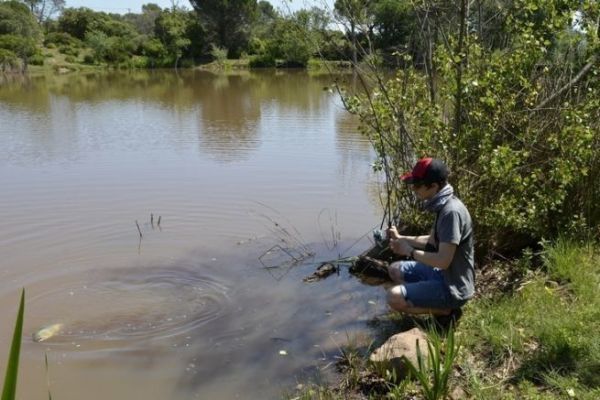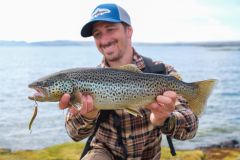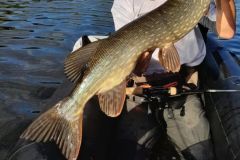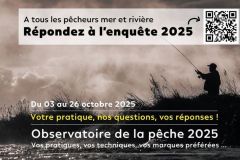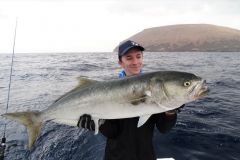I don't understand this sentence. I really don't. I just know that it will take me some time to grasp what it means. It rings true, but I already know that it's going to be a lot of work ahead.
"It's not catching that counts," says the fisherman, "it's trying René Barjavel.
Understanding what an act of civilization is
An act of civilization is anything that moves human beings away from brutality, barbarism, indifference or blind domination. It is a gesture, a commitment or a policy that aims to elevate the human condition, to reinforce justice, solidarity or respect for living beings.
These acts can be spectacular, like the abolition of slavery, or everyday: protecting an endangered species, passing on knowledge, preserving a river, educating people about protecting the aquatic environment.
But isn't fishing often accused of being barbaric by animalists? It would be naive to imagine that every act of civilization is pure. As the philosopher Edgar Morin reminds us: "There is no sign or act of civilization that is not at the same time an act of barbarism."
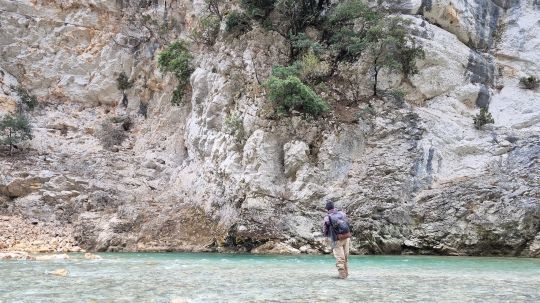
This ambiguity also exists in recreational fishing. Fishing means harvesting, interacting with living things. But it's also an opportunity to learn how to do it differently. Leisure fishing, when thought of as an ethical and respectful practice, is, as Olivier said, an act of civilization.
Fishing isn't just about catching fish. It's about being in nature, observing it and trying to understand it.
"Only the fisherman knows the exact taste of morning, the taste of bread and the taste of dawn coffee. He alone has these exorbitant privileges. Born subtle, he doesn't talk about it. He keeps them to himself. It's a secret between him and the fish, him and the grass, him and the water René Fallet
Fishing makes people face up to their responsibilities.
It invites him to make choices: to harvest or to release? Respect the spawning ground or ignore it? Pass on knowledge or keep secrets? Act alone or with others? It becomes humanistic when it embodies certain fundamental values.
It respects living things: anglers become aware of the value of nature and fish, limit their catch, release fish whenever possible, or fish ethically. It creates human links: between generations (family fishing), between friends, or through associations (AAPPMA) where volunteers commit themselves to the common good.
It educates: by passing on knowledge, introducing young people to respect for nature, fighting indifference or violence towards living things. It is committed to the environment: cleaning up rivers, combating pollution, preserving aquatic environments. It defends the right of access to nature for all, without social, financial or cultural distinction.
But it's not when... It becomes purely predatory or selfish: taking without limit, without respect for the fish or the environment, ignoring biological or regulatory rules. It excludes others: excessive privatization of courses, elitist mentality, rejection of beginners or different anglers. It is indifferent to ecological issues, to other users of nature, or to animal suffering.
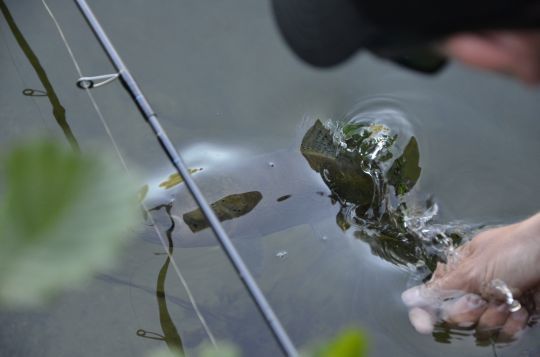
Fishing associations
In France, recreational fishing is based on an associative model: the AAPPMA. These associations manage the environment, maintain fishing routes, and carry out educational, surveillance and protection activities. When you buy a fishing licence, you're supporting a voluntary commitment to nature and the common good.
Associative fishing is also a visionary activity:
Reconnecting nature and society: fishing is a counterpoint to urban logics disconnected from the living world, where anti-speciesism often develops in an abstract or idealized world.
Taking ecological action in the field: fishermen, who are often the first to warn of pollution, maintain riverbanks and monitor ecosystems, take concrete action where others are content with slogans.
A reminder of ecological complexity and the need for humility in the face of living things: nature is not a world of vegetarian peace. It's a world of relationships, interactions and sometimes predation. Entering it means learning to deal with this complexity, not deny it.
The world of networks
Social networks have replaced fireplaces. In the past, we'd hang a stuffed fish like a silent trophy; today, we post a photo of a catch on Instagram or Facebook. Likes have taken the place of family compliments, and every notification flatters the angler's ego.
But this digital mirror distorts reality: it gives a false picture of fishing and catches. An outing without a one-metre pike is almost perceived as a failure, whereas an 80 cm pike is already a magnificent fish, the fruit of patience and know-how. This quest for the spectacular obscures the essential: the beauty of the moment, the balance of the environment, the encounter with living things. Humanist fishing, on the other hand, takes place in the shadows of screens, in patience and discretion, where the essential cannot be measured in likes.
The illusion of grandeur fostered by the screens also weakens the public image of fishing. In the eyes of those unfamiliar with our passion, it appears as a race for trophies, a hobby focused on performance. This perception, often false, fuels facile criticism and snap judgments. Yet the reality in the field is quite different: behind every outing lies a concern for the environment, a humility in the face of living creatures, and often concrete action to protect them.
The world is changing, and criticism of fishing is evolving. They sometimes come from those who have never held a rod, but who project an idealized, abstract vision onto the living world. Far removed from the field, rivers and real life. The answer to this is not anger, but collective intelligence. That of the fishing associations, of their thousands of volunteers, of those who know that protecting a river requires more than a tweet.
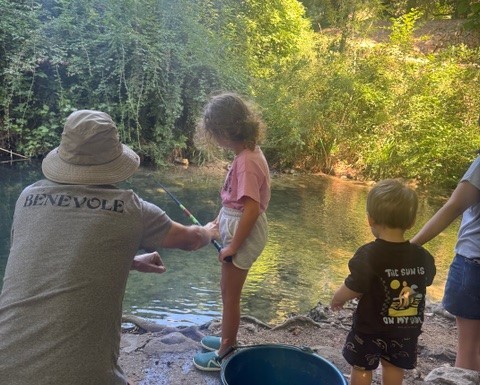
Conclusion
Recreational fishing becomes an act of civilization when it rejects brutality, overexploitation and indifference. When it seeks to understand rather than to dominate, to transmit rather than to accumulate, to protect rather than to harvest without limit. It is profoundly humanist when it is based on reason, respect, solidarity, education and concern for the common good, and is in line with the logic of moral and ecological progress.
At a time when people are talking about reconciling man and nature, fishing, if practised conscientiously, can be a discreet but powerful means of transformation. A space for bonding, learning and commitment. A place where we learn not only to fish, but to live differently with living things. And in this world in crisis, every act of civilization counts. Even the act of putting a line in the water, open to natural acts, to those of nature.

 /
/ 